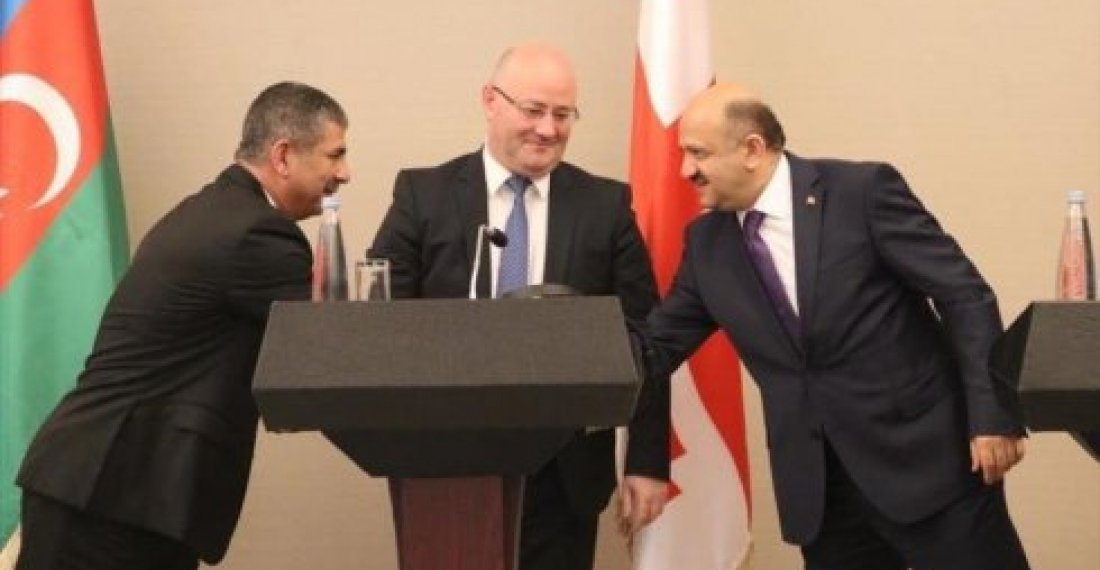Turkey's strategic alliance with Azerbaijan, trilateral co-operation including Georgia and its efforts to transform itself into a regional energy hub will continue to be the main features of the Erdogan government policy in the South Caucasus, argues Benyamin Poghosyan in this op-ed
24 June 2018 was a big day for Turkish domestic politics. Turkey elected both the President and the Parliament. Given the sweeping constitutional changes approved in the April 2017 referendum, the new President has become an almighty figure in Turkey. Despite various assessments envisaging hard times for the incumbent Turkish President, Erdogan managed to win the race without entering into a possibly dangerous run-off. Although Erdogan's AKP lost the majority in the parliament, together with its partner - the nationalist MHP - Erdogan will continue to control the legislative body.
The June 24 elections have marked the end of the long journey of radical transformations for the Turkish state launched by Erdogan in the late 2000s. Meanwhile, the continuation of Erdogan's tight grip on power will also impact Turkish foreign policy including Ankara's approaches to the South Caucasus.
Turkey's policy in the region is based on its strategic alliance with Azerbaijan. Another long-term goal of Ankara is to foster trilateral Turkey-Georgia-Azerbaijan cooperation and increase its economic influence over Tbilisi. In addition, another key factor influencing Turkish policy in the region is the South Caucasus's capacity to provide oil and gas into international markets using Turkish territory. The Baku-Tbilisi-Ceyhan oil and Baku-Tbilisi-Erzurum gas pipelines, as well as a recently launched TANAP pipeline, are supporting Turkish efforts to be transformed into a regional energy hub. Given the upcoming signature of the Convention on the Caspian Sea status, which potentially may open the door for the construction of a Turkmenistan-Azerbaijan gas pipeline, the South Caucasus may become one of the trump cards in Turkey's energy geopolitics.
Turkey perceives the Azerbaijan-Georgia-Turkey trilateral cooperation format as a significant tool in its policy of isolation against Armenia. Both Turkey and Azerbaijan implement a "War of attrition" strategy against Yerevan hoping to compel Armenia to make concessions in the process of the Karabakh conflict negotiations. Since 1991 Turkish policy towards Armenia has been shaped by two key issues - international recognition of Armenian Genocide with possible demands for reparations and the Karabakh conflict. However, after the hundredth centennial of Armenian Genocide in 2015, the significance of this issue for Turkey started to diminish. Currently, the main factor shaping Turkish policy towards Armenia is the Karabakh conflict and Ankara's strategic alliance with Azerbaijan. Given the growing investments of the Azerbaijani state and private companies in Turkey, Baku has also acquired economic leverages, which are being used rather effectively. Turkish authorities are overtly linking any improvements in the Turkish-Armenian relations with advancements in the Karabakh negotiation process - an approach that is vehemently rejected by Armenia. Both the former government of President Sargsyan and current Prime Minister Pashinyan have reiterated that no preconditions should be put forward for the normalization of bilateral relations and that Armenia sees no active role for Turkey in the Karabakh conflict settlement process.
Meanwhile, Turkish policy in the South Caucasus is based not only on relations with regional states. The South Caucasus are a part of the former Soviet Union, and thus, are included in the Russian self-declared zone of special interests. The Euro-Atlantic community - the US, NATO and the EU - have interests there too. Given the Azerbaijan-Iran and Armenia-Iran land borders, the current stalemate in Georgia-Russia relations, and the transit capacity of the region, the West cannot afford to forget about the region.
In the current geopolitical juncture, Turkey plays a very delicate balancing act between Russia and the US. In general, Ankara accepts the leading role of Russia in the South Caucasus. Given the scope of Russia-Turkey cooperation, the transfer of S-400 air defense systems, the Russia-Iran-Turkey alliance in Syria, as well as Turkey's efforts to position itself as a transit hub for additional Russian gas exports to Europe, Ankara is not interested in jeopardizing its relations with Moscow by contending with Russia in the region. Meanwhile, Turkey has a clear understanding that despite its growing cooperation with Moscow, Russia-Turkish relations are far from a strategic alliance and most probably will never reach that level. Thus, Turkey seeks to keep its alliance with the US and NATO, using its relations with Russia as leverage in its strategic bargain with the West. In this context, Turkey supports Georgia's euro-Atlantic aspirations and growing cooperation with NATO.
Another key element of the Turkish regional policy is Ankara's efforts to be integrated into China's flagship "One Belt - One Road" initiative. There are two main routes by which Chinese exports can reach Europe via Turkey. One option is the China-Iran-Turkey corridor given the existence of both the China-Iran sea route and China-Kazakhstan-Turkmenistan-Iran railway.
The second option is the Trans-Caspian International Transport Route, which starts from China, runs through Kazakhstan, the Caspian Sea, Azerbaijan and either via Georgia or Turkey, and reaches Europe. In this context the launch of the Baku-Tbilisi-Kars railway in October 2017 bodes well for Turkey's efforts to be involved in OBOR initiative.
Thus, from a short/mid-term perspective, Turkey most probably will continue its strategic bargaining with Russia and the West seeking to keep the balance also in the South Caucasus. Turkey's regional policy will be based on its desire to deepen its strategic alliance with Azerbaijan and foster Turkey-Azerbaijan-Georgia cooperation. After the centennial of the Armenian Genocide, Armenia will carry less and less significance for Turkey, potentially being dropped out from Turkey's key foreign policy agenda.
source: Dr. Benyamin Poghosyan is the Executive Director of the Political Science Association of Armenia. He contributed this op-ed to commonspace.eu
The views expressed in opinion pieces and commentaries do not necessarily reflect the position of commonspace.eu or its partners.
photo: The Defence Ministers of Turkey, Azerbaijan and Georgia at a meeting in Batumi in 2017 (archive picture)






